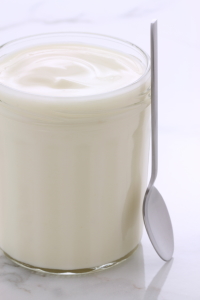- How To Prevent & Treat Urinary Tract Infections - December 1, 2023
- Find Out How To Reduce The Risk of Eczema by Almost 50% - November 10, 2023
- Nurture your baby: Nurture your microbiome - November 10, 2023
Key message: Studies have shown that ‘bad’ bacteria in your gut can increase your appetite and slow down your metabolism, contributing to weight gain.
Action point: Take a broad spectrum high strength probiotic every morning when you get up to help innoculate your gut with beneficial bacteria
 Can’t shift those kilos? Your gut may be the problem.
Can’t shift those kilos? Your gut may be the problem.
But I’m not referring to the size of your waistline. I’m talking about the tiny residents that make up 90 per cent of our living cells – microbes. Researchers are now beginning to understand the extent of gut flora’s role in gut health and obesity.
Studies have shown that ‘bad’ bacteria in your gut can increase your appetite and slow down your metabolism, contributing to weight gain. They may also be responsible for other health problems such as diabetes.
A 2010 study found that mice without a protein known as toll-like receptor 5 (TLR5) in their gut gain excessive weight and develop full-blown diabetes and fatty liver disease when fed a high-fat diet (1).
TLR5 is important for ‘policing’ the bacteria in your gut. Without TLR5, bad bacteria can get out of control. It was found that these bad bacteria produced a low-grade inflammation in the mice, causing them to eat more and develop insulin resistance.
But that wasn’t the researchers most intriguing discovery. Even more interesting was what happened when they transferred the gut flora from the overweight (TLR5-deficient) mice into the guts of skinny mice. The skinny mice immediately started eating more and eventually developed the same metabolic abnormalities the overweight mice had.
In other words, obesity and diabetes were “transferred” from one group of mice to the other simply by changing their gut flora.
But there’s good news – the reverse can also be true.
In a more recent study, researchers found that a person’s gut microbiome affects their metabolism and contributes to obesity(2). On the flip side, ‘skinny’ microbes found in some people could potentially be transplanted into people who lack these friendly bugs to protect against weight gain.
Researchers from the UK studied 416 twin pairs and sequenced the genome of microbes found in more than 1000 fecal samples. They report that identical twins have gut microbiomes that are more similar than those of fraternal twins.
The investigators identified a relatively unknown family of organisms called Christensenellaceae, which is more common in the guts of individuals with low body weight. Moreover, when the investigators transplanted the specific microbes into mice, they found that these “skinny microbes” protected against weight gain.
The researchers hope that advances in gut health and obesity may open the door for personalised probiotic therapies that may reduce the risk for obesity-related diseases.
The bottom line from all this science? ‘Good’ bugs may just be able to help us to fight the bulge.
Foods for gut health
Believe it or not, cheeses can balance out your gut flora. Researchers have found that that cottage cheeses and soft fermented cheeses like Gouda, some cheddars, and parmesan are all often packed with probiotics, similar to Greek yogurt (3). So go out of your comfort zone and experiment with European cheese. Your gut flora may thank you.
References:
1. Vijay-Kumar et al (2014) “Metabolic Syndrome and Altered Gut Microbiota in Mice Lacking Toll-Like Receptor 5”. Science 9 April 2010: 328 (5975), 228-231. Published online 4 March 2010 [DOI:10.1126/science.1179721]
2. Goodrich, Julia K. et al. (2014) Human Genetics Shape the Gut Microbiome. Cell , Volume 159 , Issue 4 , 789 – 799
3. Zheng H et al (2015) “Metabolomics Investigation To Shed Light on Cheese as a Possible Piece in the French Paradox Puzzle”. Journal of Agricultural and Food Chemistry. 63 (10), pp 2830–2839 [DOI: 10.1021/jf505878a]
Kat Boehringer
Freelance journalist and editor
Kat Boehringer specialises in health communications including health writing, health promotions, and social media management. In her spare time she works as a massage therapist and aspiring novelist. Connect with her at LinkedIn.


